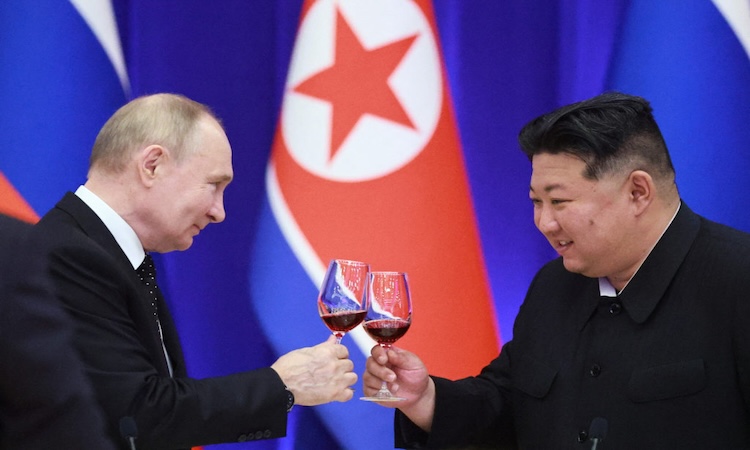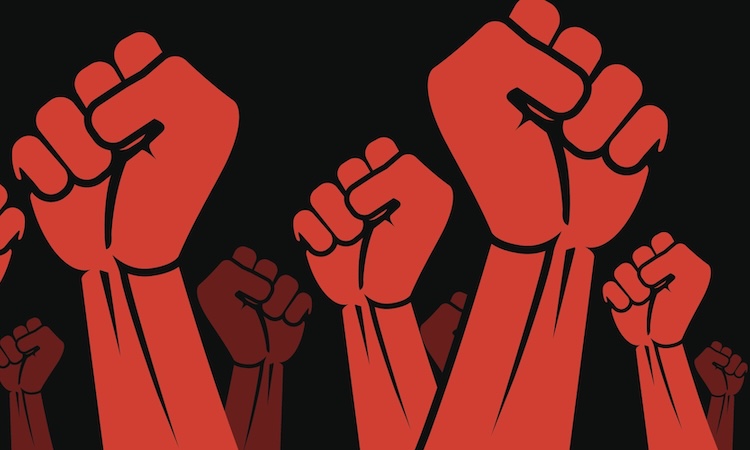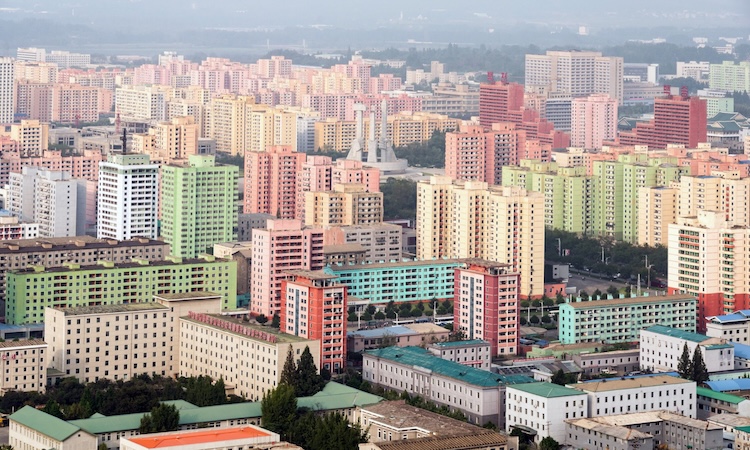The CPGB-ML held its tenth congress over the Easter weekend, 18-20 April 2025, assessing the work that the party has been engaged in over the last three and a half years, drawing the necessary lessons and setting the direction for our work in the coming period. We expect to see increasing class struggle as the global capitalist crisis of overproduction continues to worsen and its effects become ever more unbearable for working people everywhere.
The deepening economic crisis is the ultimate cause of everything that is presently making life so difficult for large swathes of the masses both at home and abroad. It is the capitalists’ drive to restore profitability that continues to drive wages down and leads them to inflict ever more vicious austerity on the workers at home. And this is also what is impelling their reckless drive into a third world war, whose flames are already spreading across the globe from Ukraine to the middle east and on to east Asia, where a fresh outbreak of the Korean war was only narrowly averted last December.
Significant developments in the overall situation and in our party’s work since our last congress have been:
- Our exit from the Workers party project and consequent focus on rebuilding the organisational structures of our own party.
- The launch of Russia’s special military operation (SMO) in Ukraine and our involvement in helping to form the World Anti-imperialist Platform, which was a response to the dangerous and demobilising confusion evident in the ranks of communists worldwide.
- The ratcheting up of the genocide in Palestine and the failure of the antiwar movement to organise genuine solidarity from British workers.
- The suppression of free speech and democratic rights in Britain, in particular aimed at any genuinely anti-zionist and anti-imperialist activity, and the effects of this on the wider movement and on our party.
- The cost of living crisis and the failure of the trade unions to organise workers in self-defence.
- The passing of our founding chair and guiding theoretical light Comrade Harpal Brar.
This congress dealt with a record number of motions – a reflection of the heightened level of work we have been undertaking on every front, despite the difficult conditions we have faced and the relative smallness of our organisation. It was notable that the comrades who assembled at Saklatvala Hall in Southall were engaged, involved and unified, and that they left inspired and determined to redouble their efforts to build the party that we know our class so desperately needs.
As several of our motions pointed out, we are in a time of great crisis for the system and great opportunity for the oppressed and exploited masses of the world. But the final defeat of imperialism and the establishment of a world of sovereign and socialist states will not take place without firm Marxist science and organisational steel at the heart of the anti-imperialist movement.
Without the theoretical clarity and organisational discipline provided by Marxism-Leninism, too many among the masses, even when desperate for change and ready to fight, are liable to be manipulated into dead ends. Many who should be mobilised to fight for socialism will instead find themselves fooled by the siren songs of the racist and divisive demagogues whose job it is to confuse angry workers and persuade them to fight on the side of their class enemies.
Over the course of the long weekend, congress discussed motions on working in broad fronts, on party building, on study and on culture, amending our rules to take note of some of the most vital lessons of the last period. Delegates discussed the Palestine solidarity movement, its growing anti-imperialist core and the role of the Labour government in suppressing and criminalising that core.
Motions described the threat of fascism as the economic crisis deepens, the role of communists in the trade union movement and the various strategies of the ruling class to divide and distract workers from joining together in the fight for socialism, from anti-immigrant rhetoric to bourgeois electioneering to Trotskyism, as well as the divisive ‘culture wars’ framing of many important issues. Other motions outlined the role of women and young people in our movement and adopted measures to enhance our work with both vital sections of our membership and class.
We discussed the problem of capitalist overproduction and its domestic effects, as seen in the deepening poverty crisis afflicting British workers, and affirmed and expanded our party’s minimum programme in response. In this context, we also affirmed our opposition to euthanasia in the hands of a capitalist class only too ready to abuse what should be a humanitarian measure for the purposes of relieving itself of the ‘burden’ of caring for those whom the capitalist class can find no use for.
In relation to the antiwar and anti-imperialist movement, congress reaffirmed the party’s commitment to popularising the call for a mass movement of non-cooperation with the British and Nato war machine – in Gaza, Ukraine and elsewhere – and reaffirmed our commitment to the vital work of the World Anti-imperialist Platform.
The congress discussed the rise of Brics and the crisis in the imperialist camp, emphasising the need for full solidarity with all the resistance forces of the middle east and elsewhere, and highlighting the Congo genocide in particular as a crime that goes unremarked by mainstream media and antiwar activists alike in Britain.
We reasserted our solidarity with sovereign and socialist states in Latin America – Cuba, Venezuela and Nicaragua – as well as with the new Alliance of Sahel States in Africa, and with Russia, China and the DPRK. And we committed our party to helping set up the British chapter of the Antifascist International that has been launched by Venezuelan comrades in Caracas.
While we did not invite international delegates to take part in this particular congress, our comrades from the British branch of the Sri Lankan JVP made a superb lunch for us on day two and delivered an inspiring message of solidarity, highlighting their appreciation for our support for their organisation over the years and their deep respect for Comrade Harpal’s theoretical contributions to our shared movement.
All motions passed by the congress will be published on the party website over the next month, and motions, reports and speeches will be collected into a tenth congress pamphlet.
The congress paid tribute to the huge contribution made by our late comrade Harpal Brar, and to the invaluable service of Comrade Ella Rule, who stepped down as party chair after seven and a half years. A new central committee and new officers were elected:
- Chair: Joti Brar
- Vice chairs: Nina Kosta and Daniel O’Brien
- General secretary: Ranjeet Brar
The new central committee appointed an assistant general secretary, an international secretary, an industrial secretary, a publications officer and a finance officer at its first meeting, and set up 15 working groups and committees to manage our main areas of activity.
It was the overwhelming view of the delegates that our tenth congress was an inspiring event, outlining the great successes we have achieved with very modest means over the last few years and setting a firm line of march for the coming period. Our ranks are growing fast, and we can expect them to grow faster still.
Join us!
















